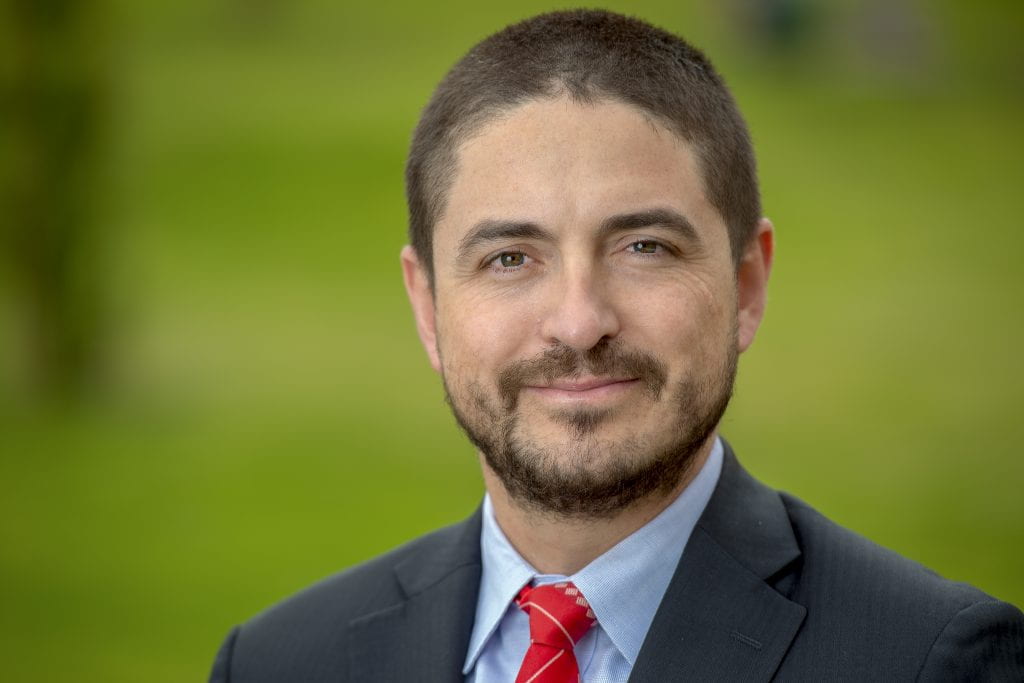
Healthcare Administrator Knows Culture Change Starts With Him
By Lynn Lipinski
Felipe Osorno knows that culture change initiatives can work.
He has seen it unfold at Keck Medicine of USC during the five years he has worked there. Now, the executive administrator for continuum of care operations hopes to share those successes and lessons learned through his participation in the Working Group on University Culture.
A key to successful culture change, according to Osorno? Communication is key.
When Keck Medicine began doing this sort of work in 2013, its aim was a culture encompassing a committed focus on employee engagement and patient experience. Critical to the effort was improving the flow of communication from employees on the front line of patient care all the way to the top.
Creating Space for Real Communication
About a year ago, Osorno said, Keck Medicine established a tiered huddle system throughout the organization. A technique growing in popularity among healthcare providers, tiered huddles have been found to bring dramatic improvements to patient safety and employee engagement. It works like this: front line staff kicks the process off by huddling up for a short meeting at 7 a.m. each day to talk about concerns or issues. Those concerns and issues are then escalated through management as the morning progresses, so that by 9:45 a.m., Keck Medicine’s executive team has a snapshot of any serious safety events, equipment downtime, or other challenges occurring in the system, as well as understanding key operating metrics throughout the organization.
The tiered huddle system keeps patient safety and experience at the forefront while engaging employees to make sure their voices are heard.
“We hear about issues in real time and are able to act a lot more quickly. Operational day-to-day issues are starting to flow up and down more easily. It also ensures we talk about what matters every day with a predictable cadence,” Osorno said.
It also allows for direct, face-to-face communication rather than relying on email, where messages can get lost in translation, something that happens not just in healthcare systems but in many organizations and individual departments and units.
“When we communicate often about the things that matter, people pay attention. But when there are gaps in information, people fill in those gaps and make assumptions about what matters and what doesn’t,” Osorno said.
HSC’s Different Perspective
While Keck Medicine’s culture change efforts may bring many insights to the budding university-wide effort, Osorno also sees one of his roles on the Working Group on University Culture as advocating for the distinct perspectives of those at the Health Sciences Campus, particularly those working within the Keck Medicine organization. That means reminding staff, faculty and students at University Park Campus about HSC’s dual focus on patients as well as students. For example, Keck Medicine of USC hospitals care for about 600 inpatients a day, and its clinics treat 3,000 patients a day. Focusing on their experience is at the center of Keck Medicine culture.
“I think there are several groups within USC that might identify more closely with their own organization rather than with USC as a whole,” Osorno said. While he sees a tendency for those working within Keck Medicine to talk about that organization’s culture rather than the USC culture, he also understands the need for university-wide standards.
“There are universal values that we can probably agree upon but translating these to [the university’s] different environments is part of the important work we have to do,” he said.
Opening Up to Culture Change
When asked what advice he would give to USC community members at the start of the culture change journey, he said to remember that it all starts with personal responsibility.
“If we as individuals don’t start behaving differently, how do we expect the university to be different?” he said. It’s especially true for those in management or supervisory positions, as they set the tone for the people who report to them.
Osorno sees culture as the sum total of the behaviors and actions that individuals take every day. The popular saying that “change begins with me” is more than just a feel-good maxim, it’s a principle that Osorno has seen hold true in cultural change efforts at Keck Medicine.
He encourages staff who haven’t gotten involved in the university’s culture change efforts to speak up, to volunteer to help, and more importantly, to live their personal values.
“Complaining is easy,” Osorno said. To bring about real improvements, he said, we have to decide to be part of the change.